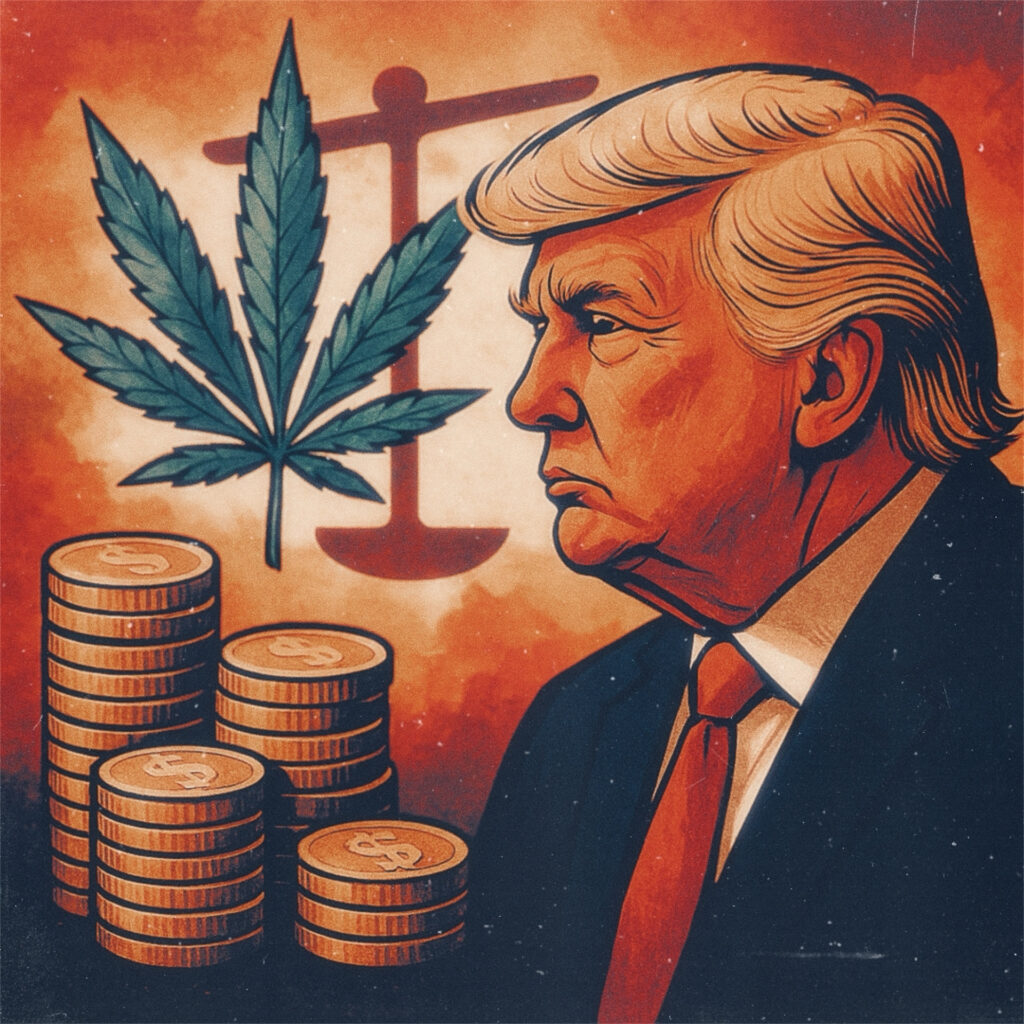Industry Lobbying Spurs Trump Reconsideration of Marijuana’s
Internal anchor suggestions: Schedule III classification impact; DEA rescheduling process; Trump fundraiser policy signals; Industry tax relief under 280E
For years, cannabis advocates have been chasing the political equivalent of a mirage: federal marijuana reform that actually arrives. Now, with former President Donald Trump openly signaling he’s considering moving marijuana from Schedule I to Schedule III of the Controlled Substances Act, the prospect feels less like fantasy and more like a calculated business deal.
It’s not just grassroots activism at play. According to an August 11, 2025 report by MJBizDaily, the cannabis industry — and in particular Florida-based multistate operator Trulieve — has been investing heavily in political access. Those checks aren’t going into a PAC-shaped void. At a high-dollar fundraiser at Trump’s Bedminster golf club, attendees reportedly heard the former president float the idea of reclassification. If carried out, the shift could slash the tax burden imposed by Internal Revenue Code Section 280E, unlock more opportunities for medical research, and legitimize cannabis banking in ways the industry has sought for decades.
The Long Road to Schedule III
The federal scheduling of cannabis has been a sticking point since the Controlled Substances Act took effect in 1971. In August 2023, the Department of Health and Human Services recommended rescheduling cannabis to Schedule III — a category that includes ketamine and anabolic steroids. The DEA began the rulemaking process soon after. But by early 2025, hearings had been paused over legal and procedural disputes, leaving the process in bureaucratic limbo.
Then came a change in leadership. In July 2025, the Senate confirmed Terrance Cole as DEA Administrator. The industry hoped Cole would accelerate rescheduling. Instead, his first public agenda omitted any mention of cannabis reform, raising doubts about the pace — or even the sincerity — of the process.
Money Talks — and Cannabis Companies Are Speaking Up
Enter Trulieve and its CEO Kim Rivers, who has reportedly leveraged personal relationships to bring cannabis policy into Trump’s donor conversations. Trulieve has poured millions into political committees aligned with Trump, a strategy that appears aimed at bypassing legislative gridlock and reaching the person most likely to make a scheduling decision: the president himself.
Industry leaders argue these contributions are about more than bottom lines. Rescheduling would open doors for clinical studies on cannabis’ therapeutic potential, from chronic pain management to PTSD treatment. In their view, it’s a public health play as much as a financial one.
Still, optics matter. Critics see a direct line between campaign cash and federal policy consideration, a narrative that can erode public trust. The question is whether this is business as usual in American politics or a textbook example of regulatory capture.
Cole’s Crucial Role
The DEA has the final say on scheduling decisions, though a president’s stance can influence agency priorities. That’s why Cole’s silence is so significant. If he deprioritizes the issue, even Trump’s endorsement might not be enough to get cannabis to Schedule III before the end of a term.
For reform advocates, Cole’s eventual position will be telling. A supportive DEA could finalize rescheduling within months; a resistant one could slow-walk it into oblivion. Observers will be watching for policy memos, rulemaking notices, or even quiet leaks from inside the agency.
What’s at Stake
For cannabis businesses, Schedule III status could be transformative. Under current law, Section 280E prohibits companies trafficking in Schedule I or II substances from deducting ordinary business expenses. That means higher effective tax rates, often exceeding 70 percent. Moving cannabis to Schedule III would lift that burden, freeing capital for expansion, hiring, and innovation.
The banking sector would also feel the ripple. While rescheduling wouldn’t automatically resolve all financial compliance issues, it would make it harder for banks to justify turning away cannabis clients. Combined with ongoing state-level legalization, Schedule III could normalize cannabis as just another regulated industry.
For consumers, the benefits are more indirect. Rescheduling could accelerate medical research, leading to FDA-approved cannabis-derived therapies. It could also reduce the stigma that still surrounds legal use, even in recreational markets.
Risks and Realities
The path to reform is far from guaranteed. If Cole continues to sidestep cannabis reform, the current momentum may fizzle. Congress could still intervene, either to support or block the move, depending on political winds. And even if rescheduling happens, it won’t address broader issues like federal prohibition, interstate commerce restrictions, or criminal justice reform.
Then there’s the political risk for Trump. Rescheduling might energize some voters but alienate others, particularly among social conservatives who remain opposed to legalization.
The Industry’s Gamble
By investing in political access now, cannabis companies are betting that a well-timed push can break years of federal inertia. It’s a high-stakes strategy that could either cement their place in a legitimized market or leave them with little to show for their contributions.
In the meantime, advocates, investors, and policymakers will be scanning every speech, fundraiser, and DEA press release for signs of movement. For an industry used to slow change, even the hint of federal reform is enough to keep wallets open and hopes alive.

***
Trap Culture is the ultimate destination for cannabis enthusiasts who want to experience the best of Arizona’s cannabis culture. Whether you are looking for the hottest cannabis-friendly events, the latest news on cannabis legalization, trends in the industry and exclusive, limited-edition products from the top brands in the market, Trap Culture has you covered. Visit our website to learn more about our events, our blog, and our store. Follow us on social media to stay updated on the latest news and promotions. Join the Trap Culture family and experience the most immersive and engaging social cannabis events in Arizona.
Follow us on social media




